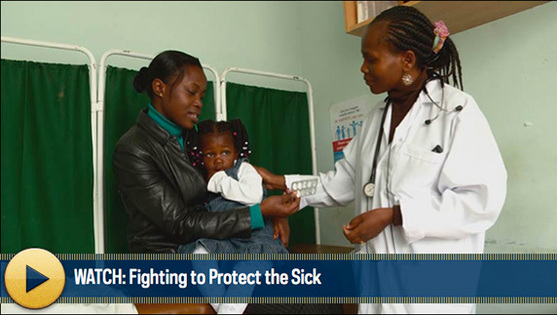Fighting to Protect the Sick

Fighting to Protect the Sick
Researchers develop high-tech paper test cards to determine if medicines are genuine, leading to safer treatment of illness around the world.
In Eldoret, Kenya, the harm imposed by substandard or counterfeit medicine is all too real. Unscrupulous manufacturers or distributors replace expensive medicines with cheaper, less effective ones - or even worthless maize meal or chalk. This type of activity is more than fraud; it's a matter of life and death. Each year, counterfeit and substandard medicines kill more than 300,000 people worldwide.
In most countries, health care providers lack the financial and technical resources to properly test drugs for authenticity. But new technology being developed by a team led by Professor Marya Lieberman of Notre Dame and Professor Toni Barstis of Saint Mary's College can make testing available for just pennies per use. The high-tech paper test cards use colorimetric chemistry to measure the presence of certain ingredients. By simply swiping a pill across the card and dipping the paper into water, distinctive color codes appear within minutes to reveal whether or not a drug is genuine.
The research team is inspired by the difference the test cards are making in Kenya, and eager to empower people elsewhere who are victimized by poor quality pharmaceuticals. This technology has the potential to change the economic incentives for buyers and sellers in the pharmaceutical market, ensuring that patients receive the medicine they so desperately need.
Field work for this project was made possible by the Eck Institute for Global Health and its partnership with the Academic Model Providing Access to Healthcare (AMPATH). AMPATH consists of the Moi University School of Medicine and Moi Teaching and Referral Hospital in Eldoret, Kenya, and a consortium of North American academic centers, including the University of Notre Dame. These partners began working together in 1989 to deliver health services, conduct health research, and develop health care leaders for North America and Africa. AMPATH serves a population of 3.5 million people in western Kenya in over 500 clinical facilities.
More information on this project can be found here.